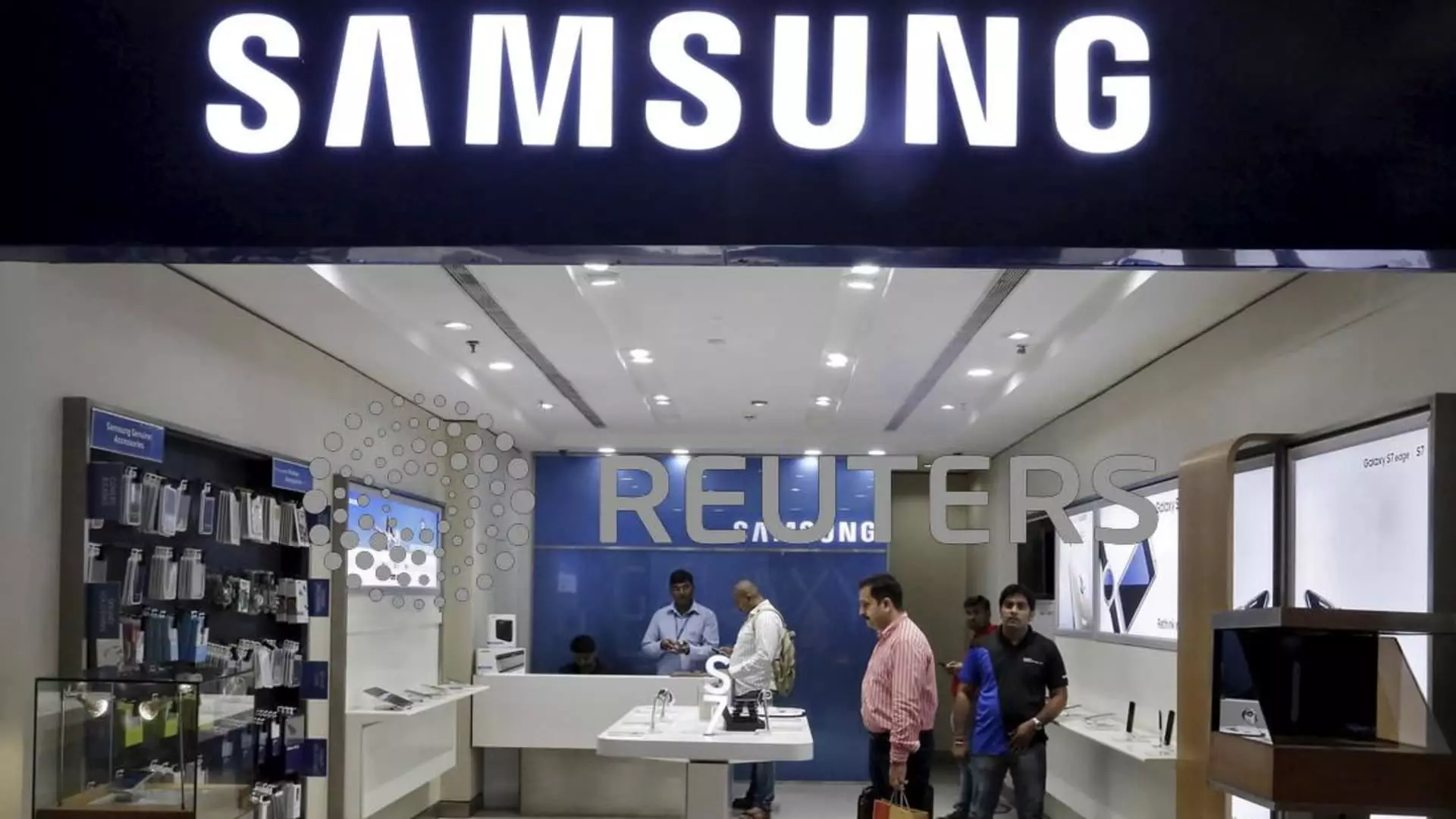Samsung Electronics has recently released its third-quarter financial results, revealing a performance that meets internal expectations but highlights significant challenges within its semiconductor segment. The South Korean tech giant registered an operating profit of 9.18 trillion won (approximately $6.6 billion) and revenue of 79.1 trillion won. While these figures surpass Samsung’s internal projections, they starkly contrast with the wider market anticipations, particularly in the context of Samsung’s influential semiconductor unit, which has faced a dramatic profit decline.
Samsung’s semiconductor business, which remains a crucial driver of the company’s overall profitability, has encountered severe setbacks. The operating profit for this segment plummeted to 3.86 trillion won, marking a staggering 40% drop from the second quarter. This downturn is indicative of broader market trends impacting demand, notably following a period of substantial growth. Although the company experienced robust demand for memory chips connected to artificial intelligence applications and conventional server products, issues such as inventory corrections and increased competition, particularly from legacy products in China, have stifled mobile performance.
Despite the reported declines, Samsung has identified a silver lining in emerging technologies, particularly artificial intelligence (AI). The company has noted that demand for next-generation chips, bolstered by AI advancements, remains a bright spot amid overall market sluggishness. This trend signals a potentially transformative shift within the electronics landscape, as investments in AI continue to influence consumer and industrial requirements for more sophisticated technology.
Looking ahead, Samsung has signaled that the anticipated recovery in mobile and PC demand will take longer than expected. However, there remains optimism regarding the future of more advanced chipsets, which the company believes will sustain growth into the next year. It underscores the need for innovation and product alignment to meet evolving market demands, especially in the tech realm where AI is becoming increasingly pivotal.
Samsung’s shares have faced substantial pressure this year, plunging approximately 24.71% since January. This decline underscores investor concerns regarding the tech giant’s profitability trajectory amidst fluctuating market conditions. Enhanced scrutiny of its financial health, particularly in light of the semiconductor challenges, could lead to more significant implications for the company moving forward.
While Samsung Electronics has managed to navigate the third quarter with results that exceed its own projections, the broader implications of its semiconductor segment’s struggles, particularly against the backdrop of AI-driven demand, paint a complicated picture. The tech behemoth must strategically recalibrate its approach to anchor itself against market volatility and sustain growth in the evolving landscape of technology.


Leave a Reply